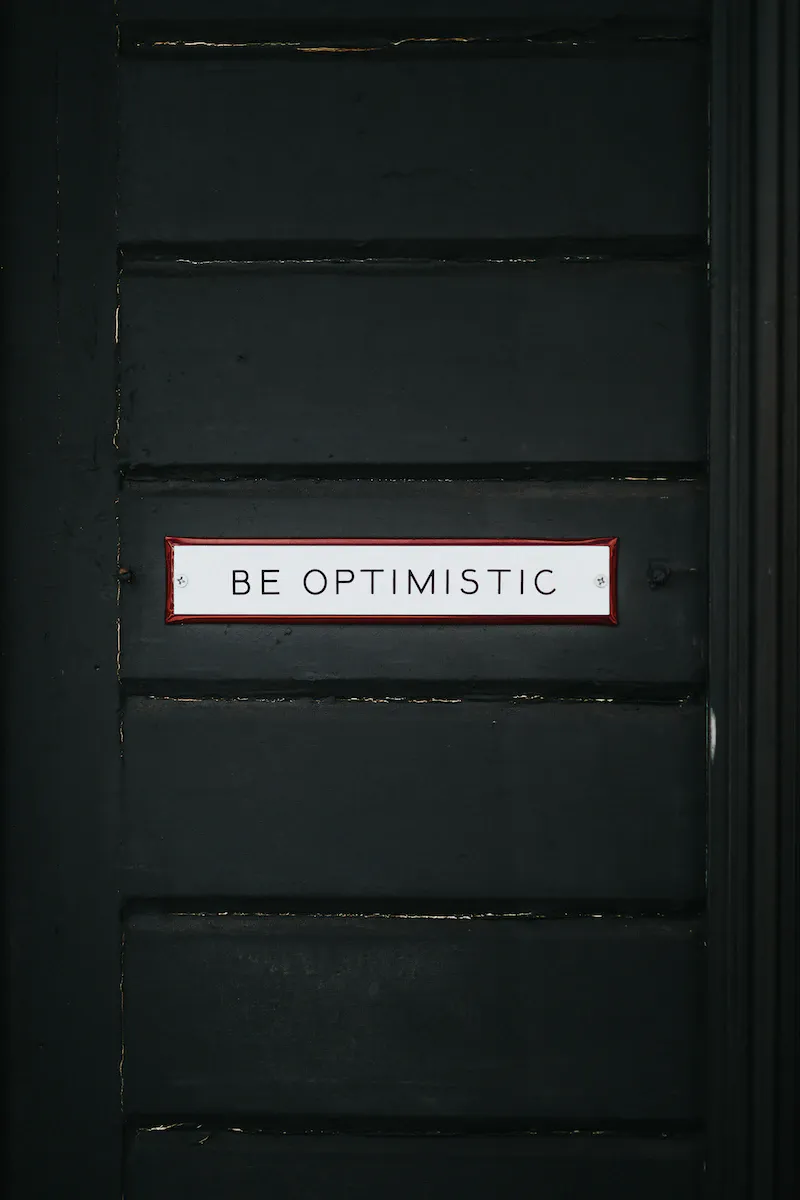Aging: Positive Perspectives and Societal Contributions

Longer Lives: The Positive Impact on Quality of Life
It’s amazing to think about how much longer people are living these days. We hear about it all the time in the news, on TV, and in the papers. Sometimes it seems like we’ve become complacent about it. But we shouldn’t take it for granted. Longer lives can improve the quality of life at all ages.
If we look back at the 20th century, more years were added to the average life expectancy than in all prior millennia of human evolution combined. We’ve nearly doubled the length of time that we’re living in the blink of an eye. As fertility rates fell, the pyramid-shaped distribution of age in the population has shifted into a rectangle.
For the first time in history, the majority of babies born in the developed world have the opportunity to grow old. How did this happen? We’re not genetically hardier than our ancestors from 10,000 years ago. This increase in life expectancy is the remarkable product of culture - the crucible that holds science, technology, and wide-scale changes in behavior that improve health and well-being.
Of course, aging comes with its own set of problems such as diseases, poverty, and loss of social status. However, research has shown that older people are happier than middle-aged and younger people. It’s called the paradox of aging.
My colleagues and I conducted a study where we followed the same group of people over a 10-year period. We studied whether and how their emotional experiences changed as they grew older. Our participants carried electronic pagers for a week at a time, and we’d page them throughout the day and evening at random times.
Using this intense study of individuals, we found that it’s not one particular generation that’s doing better than the others, but the same individuals over time come to report relatively greater positive experiences. There’s a slight downturn at very advanced ages, but at no point does it return to the levels we see in early adulthood.
We’ve found that these changes are grounded fundamentally in the uniquely human ability to monitor time - not just clock time and calendar time, but lifetime. Recognizing that we won’t live forever changes our perspective on life in positive ways. When time horizons are long and nebulous, as they typically are in youth, people are constantly preparing, trying to soak up all the information they possibly can, taking risks, and exploring.
But as we age, our time horizons grow shorter and our goals change. When we recognize that we don’t have all the time in the world, we see our priorities most clearly. We take less notice of trivial matters, savor life, and become more appreciative and open to reconciliation. We invest in more emotionally important parts of life, and life gets better, so we’re happier day-to-day.
Investing in science and technology and finding solutions for the real problems that older people face can dramatically improve the quality of life at all ages. Societies with millions of talented, emotionally stable citizens who are healthier and better educated than any generations before them can be better societies than we have ever known.
The Remarkable Product of Culture: Increased Life Expectancy
It’s fascinating to think about how much longer we are living these days. Our life expectancy has increased dramatically over the past century. This remarkable product of culture is the result of the crucible that holds science, technology, and wide-scale changes in behavior that improve health and well-being.
Our ancestors largely eliminated early deaths through cultural changes, allowing people to live out their full lives. Fertility rates fell during the same period that life expectancy was going up, reshaping the pyramid-shaped distribution of age in the population into a rectangle. This means that the majority of babies born in the developed world now have the opportunity to grow old.
It’s important to recognize that longer lives can improve the quality of life at all ages. While aging comes with its own set of problems, such as diseases, poverty, and loss of social status, research has shown that older people are happier than middle-aged and younger people.
The increase in life expectancy is not due to any genetic changes. We’re not genetically hardier than our ancestors from 10,000 years ago. Instead, it’s a result of cultural changes that have led to improvements in health and well-being.
In fact, more years were added to the average life expectancy in the 20th century than in all prior millennia of human evolution combined. This is a remarkable feat that we shouldn’t take for granted.
As we continue to invest in science and technology and find solutions for the real problems that older people face, we can dramatically improve the quality of life at all ages. By capitalizing on the strengths of older people, such as their emotional stability, knowledge, and expertise, we can build better societies than we have ever known before.
It’s time to recognize the importance of longer lives and the impact they can have on society. We should invest in science and technology to find solutions to the real problems that older people face, such as diseases and poverty. With millions of emotionally stable, talented citizens who are healthier and better educated than any generations before them, we can build a better future for everyone.
Aging: The Paradox of Positive Emotions
Aging is a topic that we often associate with negative emotions, such as fear and sadness. But what if I told you that older people are actually happier than middle-aged and younger people? It may sound surprising, but study after study has shown that this is indeed the case.
The paradox of aging is a phenomenon that has been observed by social scientists. Older people tend to report more positive emotions and fewer negative emotions than younger people, even though they face more challenges in their daily lives.
Research has shown that older people are more likely to experience mixed emotions, such as happiness and sadness, at the same time. They’re also more accepting of sadness than younger people are. This ability to engage with sadness more comfortably may help explain why older people are better than younger people at solving emotional conflicts and debates.
Furthermore, older people tend to direct their cognitive resources, such as attention and memory, toward positive information more than negative information. They remember more positive images than negative ones and tend to look toward smiling faces rather than frowning ones.
This shift in perspective is grounded fundamentally in the uniquely human ability to monitor time, not just clock time and calendar time, but lifetime. As we age, our time horizons grow shorter, and we become more aware that we won’t live forever. This recognition changes our perspective on life in positive ways. When we realize that we don’t have all the time in the world, we see our priorities more clearly, take less notice of trivial matters, and savor life more.
It’s important to recognize that aging is not all sunshine and rainbows. There are challenges associated with it, such as diseases, poverty, and loss of social status. However, the paradox of aging suggests that we should not view aging as a downward spiral but rather as an opportunity for personal growth and development.
As a society, we need to recognize the strengths of older people, such as their emotional stability, knowledge, and expertise, and capitalize on them. By investing in science and technology to find solutions to the real problems that older people face, we can build a better future for everyone.
The Unique Ability to Monitor Time: A Key to Happiness in Old Age
As we age, we become more aware of the passing of time, and this awareness has a profound impact on our happiness. It’s not just about clock time and calendar time; it’s about lifetime. This ability to monitor time is unique to humans and is a key factor in the paradox of aging, which shows that older people are happier than younger people.
The shift in perspective that comes with aging can be difficult, as it forces us to confront our own mortality. But it also brings clarity and a renewed sense of purpose. When we realize that our time is limited, we become more focused on what truly matters in life. We take fewer risks and make more meaningful connections with the people around us.
Studies have shown that older people are more likely to experience positive emotions, such as contentment and gratitude, than negative emotions, such as anger and anxiety. This is partly because they have a greater sense of perspective and are better able to regulate their emotions.
Older people also tend to have a greater appreciation for the present moment. They savor life more and are more likely to find joy in simple pleasures. They may take longer to do things, but they also take the time to enjoy them fully.
Of course, aging also comes with its challenges, such as declining physical health and the loss of loved ones. But the ability to monitor time can help us cope with these challenges and find meaning in them. By recognizing that our time is limited, we can make the most of the time we have left and focus on the things that truly matter.
As a society, we need to do more to support older people and recognize the unique strengths that they bring to the table. By investing in programs that promote healthy aging and social engagement, we can help older people live happier, more fulfilling lives. And by valuing the wisdom and experience of older people, we can build a better future for everyone.
Changes in Perspective: How Aging Can Improve Quality of Life
As we age, our time horizons grow shorter and our priorities shift. We start to recognize that we don’t have all the time in the world, and this leads us to see our priorities more clearly. We start to take less notice of trivial matters and savor life’s small pleasures more. We become more appreciative and open to reconciliation. We invest in more emotionally important parts of life, and life gets better, so we’re happier day-to-day.
But that same shift in perspective leads us to have less tolerance than ever for injustice. The most mentally sharp older adults are the ones who show this positivity effect the most. They’re better at solving hotly charged emotional conflicts and debates. They can view injustice with compassion but not despair. And all things being equal, older people direct their cognitive resources, like attention and memory, to positive information more than negative.
Our research shows that these changes are grounded fundamentally in the uniquely human ability to monitor time—not just clock time and calendar time, but lifetime. Recognizing that we won’t live forever changes our perspective on life in positive ways. When time horizons are long and nebulous, as they typically are in youth, people are constantly preparing, trying to soak up all the information they possibly can, taking risks, and exploring. But as we get older, our goals change. We see our priorities more clearly, and we invest in the things that matter most.
The Strengths of Older People: A Resource for Better Societies
As we live longer, we must take advantage of the strengths that come with aging. Contrary to what many people believe, aging does not mean a downward spiral into weakness and despair. In fact, older people possess unique strengths that make them a valuable resource for society.
For one, older people have a wealth of knowledge and experience that they have accumulated over the course of their lives. They have been through a lot and have learned valuable lessons along the way. This knowledge can be shared with younger generations to help them avoid making the same mistakes.
Additionally, older people tend to have better emotional stability than younger people. They are better able to handle hotly charged emotional conflicts and debates, viewing injustice with compassion but not despair. They are also better at processing positive information and have a tendency to focus on the positive rather than the negative.
As a society, we must invest in science and technology to find solutions for the real problems that older people face, such as diseases and poverty. We must also capitalize on the strengths of older people, such as their emotional stability and knowledge, to make society better for all. With millions of talented, emotionally stable citizens who are healthier and better educated than any generations before them, armed with knowledge about the practical matters of life and motivated to solve big issues, we can create better societies than we have ever known.
So let us not overlook the value that older people bring to our world. Instead, let us celebrate their strengths and work together to build a society that benefits all ages.
Solving the Real Problems of Aging: A Challenge for Science and Technology
As we continue to live longer, we face new challenges and opportunities. While longer lifespans bring many improvements to quality of life, there are still problems associated with aging that need to be addressed. Diseases, poverty, and loss of social status are just a few of the issues that we must tackle.
However, the more we learn about aging, the clearer it becomes that the downward course often associated with aging is inaccurate. In fact, aging brings some remarkable improvements, such as increased knowledge and emotional stability. Older people are happier than middle-aged people and younger people, according to study after study.
As the majority of people in developed countries now have the opportunity to grow old, it is essential that we find solutions to the real problems that older people face. By investing in science and technology and capitalizing on the strengths of older people, we can dramatically improve the quality of life for people of all ages.
Societies with millions of talented, emotionally stable citizens who are healthier and better educated than any generations before them, armed with knowledge about the practical matters of life and motivated to solve the big issues, can be better societies than we have ever known. We must focus on finding solutions to the problems of aging and harnessing the unique strengths of older people to build a brighter future for all.
The Importance of Recognizing the Contributions of Older People to Society
As society continues to age, it is becoming increasingly important to recognize the valuable contributions that older people can make. Despite the negative stereotypes that often surround aging, there are many ways in which older individuals can contribute to their communities and society at large.
One key area where older people can make a significant impact is through volunteer work. Many retirees find themselves with extra time on their hands, and volunteering can be a great way to use that time in a meaningful way. Whether it’s mentoring young people, providing support to those in need, or contributing to environmental or social causes, there are countless ways for older individuals to make a positive impact through volunteer work.
Another important way in which older people contribute to society is through their wisdom and life experience. With age comes a wealth of knowledge and perspective that can be invaluable in a variety of settings. Older individuals can provide mentorship and guidance to younger generations, serve as advisors in the workplace or in government, and contribute to important discussions around policy and social issues.
It is also important to recognize that older individuals can continue to be productive members of the workforce well into their later years. With advances in healthcare and technology, many people are able to maintain their physical and mental abilities well into old age. Employers who recognize the value of experienced workers can benefit greatly from the skills and expertise that older employees bring to the table.
In short, there is a pressing need to shift our perspective on aging and recognize the many positive contributions that older individuals can make to society. By doing so, we can create a more inclusive and productive society that benefits all of its members.
Conclusion
Aging is an inevitable part of life that comes with its own set of challenges and opportunities. While it can bring physical and cognitive decline, it also offers the potential for personal growth, increased happiness, and valuable contributions to society. As we continue to live longer and healthier lives, it’s important to focus on the strengths and resources that older people possess and find ways to harness them for the benefit of everyone.
Advancements in science and technology have the potential to improve the quality of life for older adults, but they must be focused on addressing the real problems that affect them. This includes ensuring access to healthcare, addressing social isolation, and promoting intergenerational relationships.
Ultimately, we should all strive to see aging as a natural and valuable part of the human experience, and work towards creating societies that value and celebrate the contributions of older adults. By doing so, we can build a better future for everyone, regardless of age.

